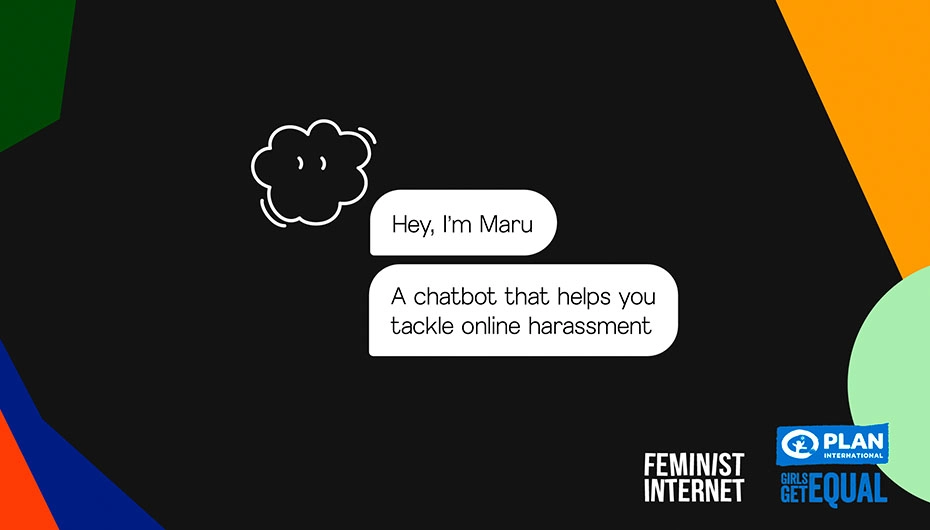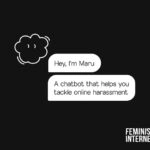Media Centre - Opinion Piece - 2 December 2020
Why social media companies need to act now to address gendered online violence

By Susanne Legena
As we approach the holiday season, one thing we can be certain of is that (between visits to the beach) most of us will remain online through the summer months, as will most Australian children. That’s why now is the time to be talking about online harassment and violence – because social media has become the new frontier of gendered abuse.
In 2020, with the added factor of COVID social isolation, we have seen spikes in the amount of online abuse and misogynist trolling – mostly directed at women and girls. In fact, Australia’s eSafety commissioner recently released data showing a 245% increase in the distribution of explicit photos and videos without consent, and a shocking 87% increase in cyber-bullying of young people.
The largest global survey of 14000 girls aged 15 – 25 in 22 countries conducted by Plan International in October found the two thirds had experienced online violence across multiple platforms, and that figure was worse in Australia than the global average.The global survey found that girls in every country had been exposed to explicit messages, pornographic photos, cyberstalking and other distressing forms of online abuse. Of 1000 girls surveyed in Australia, one in five feared for their personal safety due to online threats. So we know that Australian girls are already at the hard edge of gendered abuse online – and that should be something that shocks us all into action.
Added to this, instead of increasing online transparency in the wake of these findings, observers are now pointing to the added dangers of new end-to-end encryption codes being legislated by the European Union (the European Electronic Communications code) that will make it harder to detect illegal activity such as the distribution of child abuse material online.
The likely introduction of these new laws has prompted Australia’s eSafety commissioner to this week declare: ‘I’ve never been more fearful for our children’. And she is right – the more our children are online, the greater the threat they face from rampant online violence.
In order to tackle this head-on, Plan International Australia and global youth activists have been meeting with social media companies including Instagram, TikTok, Facebook and Twitter and asked them directly to commit to improving their reporting mechanisms.
So far, Instagram has agreed to team up with girls to address online harassment through a series of ‘Girls Get Equal’ listening sessions. In Australia, Facebook has been open to meeting with girls and young women to start co-designing solutions to online violence faced by young women.
These are important initial steps, but they are just the beginning and as long as girls continue to face online harassment and violence, real progress can’t wait. That’s why, as part of the global 16 Days of Activism against gender based violence currently underway, Plan International and Feminist Internet have just released an anti-harassment online tool called Maru the chatbot.
Designed by young activists from Benin, Cameroon, Germany, Ghana, UK, Nepal and South Africa – Maru (which means ‘could space’ in Sesotho) provides a safe, empowering and empathetic space for people facing online harassment worldwide. It is a small step towards providing safe, empowering spaces for people experiencing online harassment to go, and exactly the kind of step social media companies could and should be taking to improve girls safety online.
Social media companies need to step forward and demonstrate they are serious about making online spaces safer and more empowering for girls. That means they need to invest in collecting the data about online harassers, break it down by gender and age, publicise it, improve their reporting mechanisms so they have real teeth, as well as being proactive, listening to girls, and meaningfully advocating on their behalf.
We know from our global survey that online violence has led to nearly one in five girls who have been harassed online stopping or significantly decreasing their use of social media – effectively silencing them. That is simply not good enough.
The flip side is that social media can be an incredibly empowering and connecting place for young people – that’s why they are so drawn to it’s glowing edifice. It can be a liberating place of global connection and networking, a place to find support, to find voice and to be seen and heard in the world.
In order to successfully wrestle cyberspace from the haters, abusers and trolls, social media companies to step up now and work with girls to create safe, empowering spaces so we can all feel genuinely free to be online.
Susanne Legena is CEO of Plan International Australia, the charity for girls’ equality.
Originally published in the Canberra Times.
Media contacts


